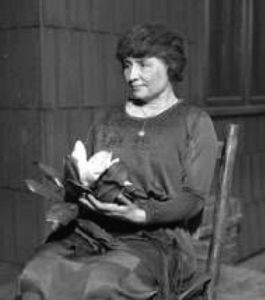Listen Now
Fix my eyes on God — soon I’ll be praising again.
He puts a smile on my face
He’s my God.
“When my soul is in the dumps, I rehearse everything
I know of You, Then God promises to love me all day,
sing songs all through the night;
My life is God’s prayer.”
Psalm 42:5, 6 MSG
![]()
Like David in the Psalms, have I ever been depressed and emotionally felt far away from God? How did I try to solve the problem of the way I felt?
I know nearly all of us have had times in our lives when despair has blanketed our lives like a thick, unending fog. Times when death may have seemed better than living. Obviously, even great heroes of the Bible like the Apostle Paul, had moments when life didn’t seem worth living as 2 Corinthians 1:8 tells us: We don’t want you to be in the dark, friends, about how hard it was when all this came down on us in Asia province. It was so bad we didn’t think we were going to make it. We felt like we’d been sent to death row, that it was all over for us.

As this brave soldier of God wrote to his friends who lived in Corinth, he could not sugar-coat the suffering he encountered, to the point that he felt his life was unbearable.
I remember a time many years ago, after having major surgery followed by complications, when I was so depressed by the situation I found myself wondering if it wouldn’t be better if I didn’t survive. Pain, grief, sorrow, stress, fear, worry, despair – all these emotions and physical symptoms can bring the strongest of us to our knees in desperation.
But as we learn from Paul’s example, when he faced great troubles in his life, he did four things:
1) He honestly and openly admitted to those around him. He didn’t try and hide his weakness or the way he felt.
2) He shared his feelings with those who care about him. He didn’t try and hide his weakness or the way he felt.
3) He reached out to God and to others. He didn’t try to walk the path of pain and despair by himself.
4) He continued to trust God no matter what his feeling said at the time.
In these four examples we find great insight into the way we can better understand ourselves emotionally especially during tines of great depression and heartache, when our “feelings” tell us God has forgotten we exist yet we know in our mind and heart that He is always by our side.

“The best and most beautiful things in the world cannot be seen or even touched. They must be felt with the heart.”
Helen Keller, Blind & Deaf (June 27, 1880 – June 1, 1968)
Recently, my sister emailed me this story with a note of encouragement. “I know you will love this story and remember, God is always with you,” was what she told me.
“This is a Cherokee Indian legend regarding the youth’s rite of passage.
The father takes his son into the forest, blindfolds him and leaves him alone.
The boy is required to sit on a stump the whole night and not remove the blindfold until the rays of the morning light shine through it. He cannot cry out for help to anyone. Once he survives the night, he is declared to be a MAN. He cannot tell the other boys of this experience, because each lad must come into manhood on his own.
The boy is naturally terrified. He can hear all kinds of noises in the night. His imagination tells him wild beasts surely are all around him. Maybe even some human might do him harm. The wind blows the grass and earth, shaking his stump, but the boy must sit stoically, never removing the blindfold.
 Finally, after a horrific night, when the sun comes up, the young man removes his blindfold. And at this moment, he discovers his father sitting on a stump nearby. His father was on watch the entire night protecting his child from harm.”
Finally, after a horrific night, when the sun comes up, the young man removes his blindfold. And at this moment, he discovers his father sitting on a stump nearby. His father was on watch the entire night protecting his child from harm.”
Our Heavenly Father promises that He doesn’t take naps or sleep and that when we go through problems as hot as fire and deep as a flood, He is with us; and that anytime and anywhere if we call, He tells us, “I will answer and show you wondrous things that you could never figure out on your own.” (Jeremiah 33:3).
The Christian author and theologian, C. S. Lewis, who himself found times in his life when he struggled with great emotional pain, wrote: “The great thing to remember is that, though our feelings come and go, God’s love for us does not.”


